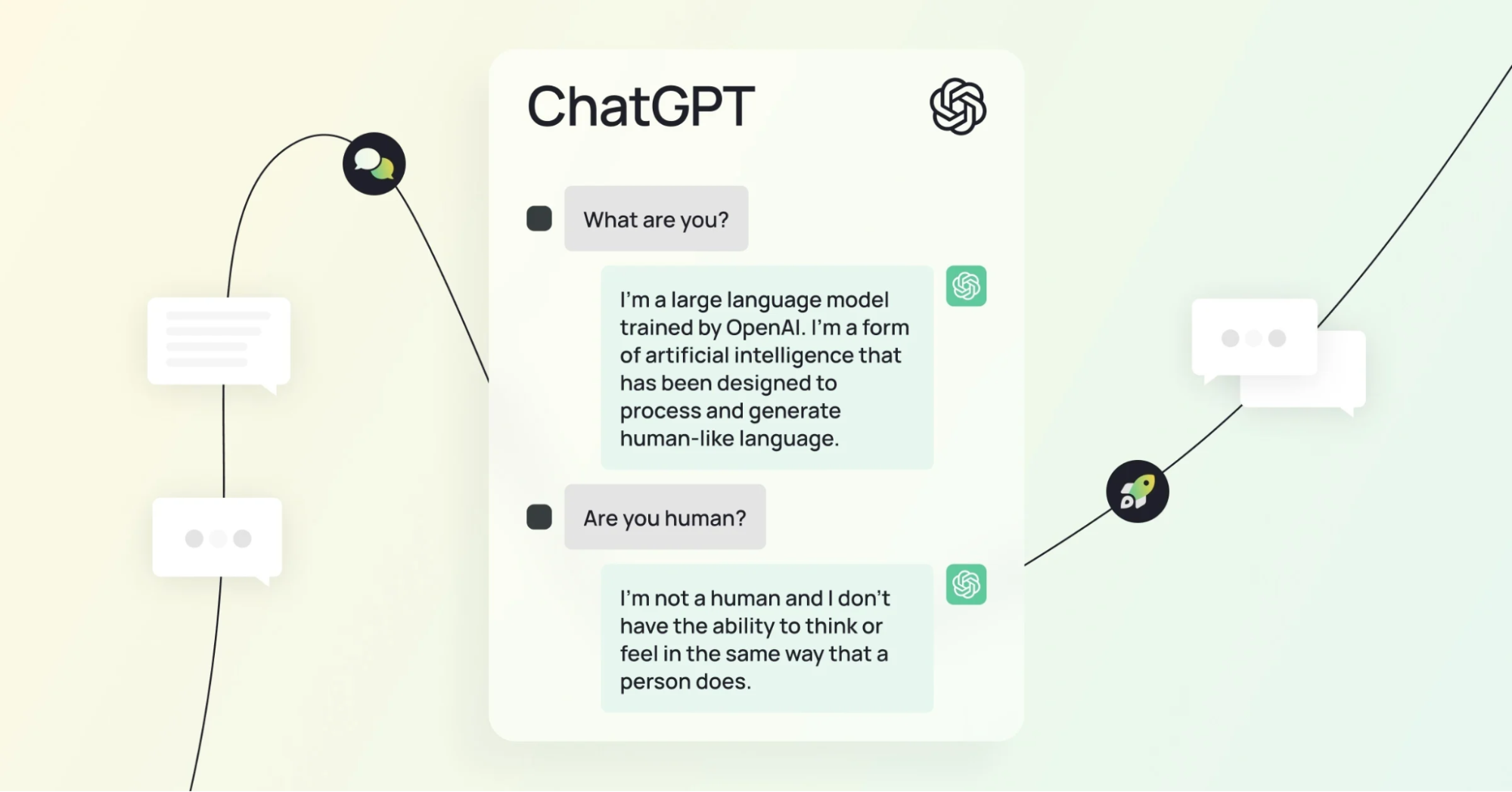Newspapers, magazines, and online publications have questioned the impact of AI technologies on humanity with the recent rise of the chatbot, ChatGPT. Some believe that we are already becoming dependent on AI tech, despite it being in its infancy, as ChatGPT has taken the world by storm with its ability to create written content on any subject based on a query given by a human.
As worries increase about the impact of AI technology, such as ChatGPT, on the potential for humans to continue to earn a living, we assess whether or not ChatGPT and AI tech is something we have to worry about or whether we can harness the power of AI to help us in our everyday lives.
What is AI?
AI stands for Artificial Intelligence and is a concept that has been around since the 1950s. In short, AI is defined as a machine’s ability to perform a task that would previously have required human intelligence. Nowadays, the term “AI” is applied to futuristic automated technologies such as self-driving cars, robots, ChatGPT-style chatbots, and AI-created artworks or visuals.
The truth is that AI has been around for decades, with the rise of the computer age ushering in the era of artificial intelligence, where a computer’s processing power acts as its brain. Virtual personal assistants such as Alexa and Siri are high-performing examples of this. Today, AI systems increasingly seek to demonstrate certain traits of human brain function, such as learning, problem-solving, creativity, and perception.

(Image Source: IntelliPaat)
How does ChatGPT work?
ChatGPT is a significant language model (LLM) programme that uses learning techniques to respond to human-led queries with human-like text responses. The AI-powered site uses Generative Pre-trained Transformer (GPT) architecture that accesses a vast dataset of text, such as books, websites, and articles, and uses them to understand and learn linguistic structures.
The bot can then respond to a query using this trained knowledge to provide a text that reads coherently, mimicking how humans write. So, rather than instructing users to click a website link, as Google does, Chat GPT provides a fully-written response based on real-life text resources.
ChatGPT has been tested by several people asking it to translate, write songs in the style of specific artists, create comedy, answer research questions, write articles, and generate computer code. The outputs are often extraordinary, allowing users to use them directly or adjust them to meet their needs as required.

(Image Source: Ultimate.ai)
How ChatGPT can be Helpful
The use cases for ChatGPT are numerous and could quickly revolutionise how we work. Here are some of the most compelling ways ChatGPT can assist us.
Writing CVs and cover letters
One of the hardest things when searching for a new job is adapting cover letters and resumes for each job. ChatGPT can help you produce personalised and high-quality CVs and tailored cover letters for any role.
Research and explain new topics
One of the best uses of ChatGPT is to use it as an extension of Google. Sometimes, Google doesn’t provide the level of depth or context to a user query, instead directing users to websites that may or may not provide the answer. With ChatGPT, users can ask for an explanation of a topic in laypeople’s terms. For example, a query such as “Explain nuclear fusion to me as if I’m 8” allows ChatGPT to adapt its outputs to ensure you understand the response. This makes ChatGPT an ideal research tool.
Help with homework
Sometimes, homework is just too difficult. Rather than using the internet as a shortcut to answering a complex Maths problem, you can ask ChatGPT to take you through a sum or equation step by step to answer the question, help you understand the methodology, and apply it to other problems.
Limitations of ChatGPT
As with all AI technologies, ChatGPT isn’t a silver bullet solution. There are several weaknesses and challenges that impact ChatGPT’s accuracy. These include:
Lack of common sense
ChatGPT is lauded for its ability to generate human-like answers to queries on almost any question, thanks to the vast amount of information the bot can access. However, ChatGPT cannot apply human levels of common sense and needs help to use background knowledge or context to its answers. This can lead to inaccurate or sometimes nonsensical responses to some queries.
Lack of emotional intelligence
ChatGPT cannot apply genuine emotional intelligence to its responses. Although some replies may appear to include empathy, the programme cannot pick up on emotional cues in queries or respond appropriately when given an emotive subject to reply to. This could lead to unintentional discrimination. We already see this with technology that’s being used by law enforcement, for example.
Cannot understand context or subtext
Many of us will have been in a situation where the recipient has misunderstood a text message we’ve written due to our inability to convey tones such as sarcasm or humour. ChatGPT is outstanding at understanding and natural processing language but struggles to grasp and understand specific nuances that portray context.
ChatGPT: Is it a Force For Good?
ChatGPT is a rich resource with undoubtedly positive use cases and benefits. Understanding the tool’s limitations and using the outputs to inform our work will be a crucial facet of helping us make the most of the vast power of this AI tool rather than simply regurgitating its responses verbatim.
As a tool to assist us with tricky tasks, understanding new subjects, and providing prompts to get us started with work, there’s no question that ChatGPT is a force for good.
The post Are we too Dependent on AI? Assessing the Effects of ChatGPT appeared first on Datafloq.

